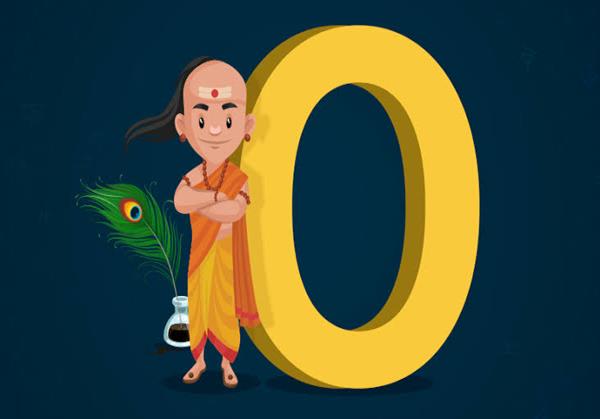Zero (0) is a numerical digit used to represent no value or null quantity. It plays an essential role in the decimal number system and many mathematical and scientific calculations. The origin of the concept of zero can be traced back to ancient civilizations in different parts of the world. However, the concept of zero as a numeral was first developed in India.

The invention of zero is attributed to Indian mathematicians who lived in the Indus Valley Civilization around 2000 BC. The oldest known reference to zero as a numeral is found in the Bakhshali manuscript, a mathematical text discovered in 1881 in the village of Bakhshali, near the city of Peshawar in present-day Pakistan. The manuscript dates back to the 3rd or 4th century AD, but some experts suggest that the earliest portions of the text may be from the 2nd century BC. The text contains examples of the use of zero as a placeholder in numerical sequences.
The Indian mathematician Brahmagupta, who lived in the 7th century AD, is credited with giving the concept of zero its mathematical meaning. He developed rules for the use of zero in arithmetic operations, such as addition, subtraction, multiplication, and division. Brahmagupta's works on zero were later studied and developed further by other Indian mathematicians, such as Bhaskara II, who lived in the 12th century AD.
The concept of zero was unknown to many ancient civilizations, including the Greeks, Romans, and Egyptians. It was introduced to the Western world by Arab mathematicians during the Islamic Golden Age (8th to 13th century AD). The Persian mathematician Muhammad ibn Musa al-Khwarizmi introduced the Hindu-Arabic numeral system, which included the use of zero, to the Islamic world in the 9th century AD. The numeral system was later adopted by European mathematicians and became the standard mathematical notation in the Western world.
In conclusion, the concept of zero was developed by Indian mathematicians in the Indus Valley Civilization around 2000 BC. The use of zero as a numeral was first recorded in the Bakhshali manuscript, a mathematical text discovered in present-day Pakistan. The concept of zero was further developed and given its mathematical meaning by Indian mathematicians such as Brahmagupta and Bhaskara II. The concept of zero was later introduced to the Western world by Arab mathematicians during the Islamic Golden Age and became the standard mathematical notation in the Western world.